
Dry Store Room No. 1: The Secret Life of the Natural History Museum (Text Only)
¥80.25
This edition does not include illustrations. ‘Dry Store Room No. 1’ is an intimate biography of the Natural History Museum, celebrating the eccentric personalities who have peopled it and capturing the wonders of scientific endeavour, academic rigour and imagination. Behind the public fa?ade of any great museum there lies a secret domain: one of unseen galleries, locked doors, priceless specimens and hidden lives.Through the stories of the numerous eccentric individuals whose long careers have left their mark on the study of evolutionary science, Richard Fortey, former senior paleaontologist at London's Natural History Museum, celebrates the pioneering work of the Museum from its inception to the present day. He delves into the feuds, affairs, scandals and skulduggery that have punctuated its long history, and formed a backdrop to extraordinary scientific endeavour from Darwin to the present day. He explores the staying power and adaptability of the Museum as it responds to changes wrought by advances in technology and molecular biology – 'spare' bones from an extinct giant bird suddenly become cutting-edge science with the new knowledge that DNA can be extracted from them, and ancient fish are tested with the latest equipment that is able to measure rises in pollution. 'Dry Store Room No.1’ is a fascinating and affectionate account of a hidden world of untold treasures, where every fragment tells a story about time past, by a scientist who combines rigorous professional learning with a gift for prose that sparkles with wit and literary sensibility. Note that it has not been possible to include the same picture content that appeared in the original print version.

Birds Britannia
¥132.53
Birds and bird lore provide a fascinating window onto our social and cultural history, and can tell us much about our changing relationship with the British landscape, our people and society. We Brits love our birds. They hold a special place in our hearts – whether it's the sound of birdsong on a spring morning, the sight of a Barn Owl hunting on a summer's evening, or a Robin perched on our garden spade. In this book, Stephen Moss focusses on some of our most beloved and charismatic birds. He explores their fascinating biology, and their place in the evolving culture and history of the British people. The author delves into the worlds of Sea Birds (Puffin, Sea Eagle and Gannet), Water Birds (Kingfisher, Swan and Avocet), Countryside Birds (Red Grouse, Nightingale and Skylark ) and Town & Garden Birds (Robin, House Sparrow and Magpie), weaving their stories together to tell four very different stories about the changing face of Britain.

Power Trip: From Oil Wells to Solar Cells – Our Ride to the Renewable Future
¥95.75
In this fresh and gutsy analysis, Amanda Little lays bare America’s energy past, present and future and shows how the innovatory designs that got it to its current energy crisis will actually save it from ruin. 'We're about to see a revolution in the way we live, fundamental changes to the way our homes work, the way our cars move, the way we grow our food, distribute our products, the way we make and recycle plastics.' - Amanda Little In this adventurous, jargon free, optimistic book, Amanda Little – tipped as 'the new voice of green' by Robert Redford – reveals the gargantuan influence of oil on our daily lives. It fights our wars, grows our crops, produces our plastics and medicines, warms our homes and animates our cities. We've allowed it to seep into every facet of our existence, from the shine on glossy magazine covers to life-saving pharmaceuticals. We depend on it completely. So what does this mean for when the oil runs out? From a deep-sea oil rig to a plastic surgery operating theatre, from New York City's electrical grid to the offices of the Pentagon, from a state-of-the-art wind farm to a testing ground for the cars of tomorrow, Little visits the most eccentric and exciting frontiers of the global energy landscape. As she introduces us to a range of characters - Saudi royalty, grassroots activists, the world's most respected politicians and an array of inventors - she argues that we are on the brink of a revolution in the way we source the energy that is so vital to us; there is an energy future beyond oil - as long as we have the courage and creativity to pursue it. Fresh, gutsy and optimistic, Power Trip will show you our world in a completely new way.
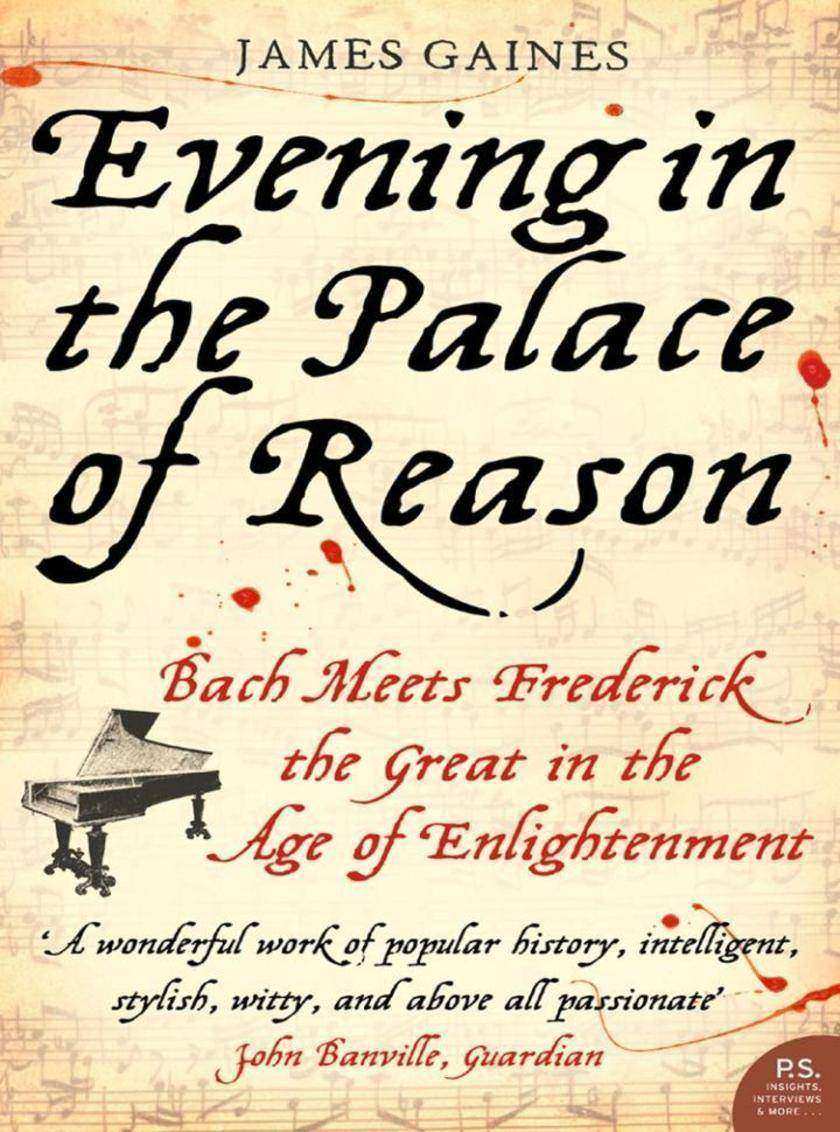
Evening in the Palace of Reason: Bach Meets Frederick the Great in the Age of En
¥81.32
In one corner, a godless young warrior, Voltaire's heralded 'philosopher-king', the It Boy of the Enlightenment. In the other, a devout if bad-tempered old composer of 'outdated' music, a scorned genius in his last years. The sparks from their brief conflict illuminate a turbulent age. Behind the pomp and flash, Prussia's Frederick the Great was a tormented man, son of an abusive king who forced him to watch as his best friend (probably his lover) was beheaded. In what may have been one of history's crueler practical jokes, Frederick challenged 'old Bach' to a musical duel, asking him to improvise a six-part fugue based on an impossibly intricate theme (possibly devised for him by Bach's own son). Bach left the court fuming, but in a fever of composition, he used the coded, alchemical language of counterpoint to write 'A Musical Offering' in response. A stirring declaration of faith, it represented 'as stark a rebuke of his beliefs and world view as an absolute monarch has ever received,' Gaines writes. It is also one of the great works of art in the history of music. Set at the tipping point between the ancient and the modern world, the triumphant story of Bach's victory expands to take in the tumult of the eighteenth century: the legacy of the Reformation, wars and conquest, the birth of the Enlightenment. Brimming with originality and wit, 'Evening in the Palace of Reason' is history of the best kind - intimate in scale and broad in its vision.
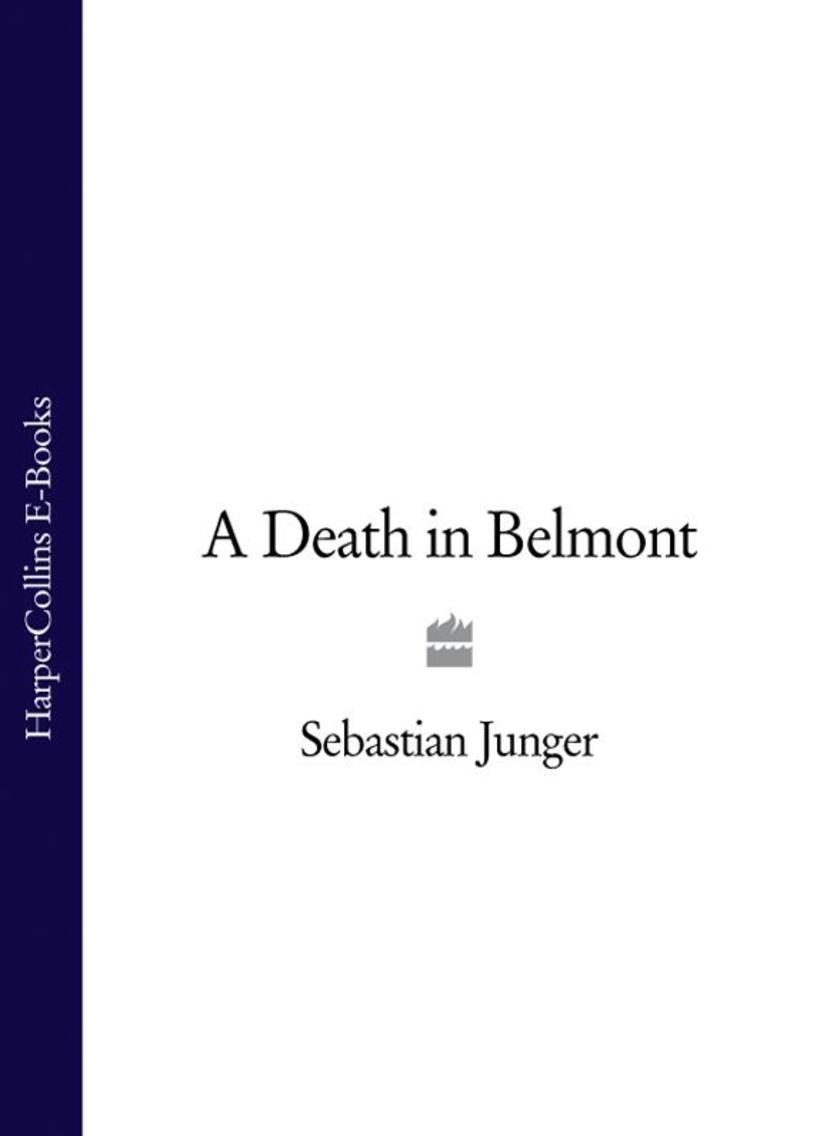
A Death in Belmont
¥73.58
A compelling portrait of 1960s America that takes as its starting point the brutal events of 11 March 1963, the day on which the lives of three complete strangers – a black handyman, an Italian-American carpenter and a second-generation Jewish housewife – collided in the leafy Boston suburb of Belmont. These three people did not know one another, but, by the end of the day, the housewife had been raped and strangled, the handyman had been arrested on suspicion of being the notorious Boston Strangler, and the real Boston Strangler – carpenter Al DeSalvo – had returned home to his wife and children. It was not until two years later that DeSalvo admitted to the gruesomely violent murders of thirteen women. Also unwittingly drawn into the drama were one-year-old Sebastian Junger's own family, who posed for a photograph with DeSalvo the day after the Belmont strangling, at the completion of his work on their studio. Taking the chilling family snap as his inspiration, Junger explores the worlds of the three protagonists and, in so doing, creates a portrait of America in the 1960s that touches on the historic themes of the era: the assassination of JFK, the rise of the immigrants and the troubling race relations that prefigured the death of Martin Luther King. This new work by Sebastian Junger, the acclaimed author of ‘Perfect Storm’ and ‘Fire’, is as enlightening as it is haunting. Taking as its foundation the events that shocked a quiet community in 1963, ‘A Death in Belmont’ expands to encompass an entire nation at a time of extraordinary social turmoil.

Learning Underscore.js
¥71.93
Explore the Underscore.js library by example using a test-driven development approachAbout This BookUnderstand and learn to apply functional programming principles using the built-in functions of Underscore.jsLeverage and reuse Underscore.js-based code to create code that targets client, server, or database contextsTake Underscore.js further by reusing code between client and server and by learning about other closely related libraries Who This Book Is For If you are a developer with fundamental JavaScript knowledge and want to use modern JavaScript libraries to extend your functional programming skills, then Underscore.js is an important library you should be familiar with.What You Will LearnReference and call Underscore.js functions using a modern JavaScript development workflowApply Underscore.js to JavaScript arrays, objects, and functionsTake advantage of object-oriented or functional programming techniques with Underscore.jsLeverage Underscore.js to create code that targets client, server, or database contextsExtend Underscore.js functionality with other closely related librariesReuse Underscore.js-based code between client and server applicationsPrepare for the upcoming JavaScript standard ECMAScript 6 and support older browsers In Detail Underscore.js is one of the most popular modern JavaScript libraries used for functional programming. It can be used as a base for building complex JavaScript applications in a sustainable manner and for building other JavaScript libraries. It embraces functional programming principles but is not opinionated and can be used with imperative, object-oriented, functional, or other programming styles. This book explores how to use Underscore.js to power your code and understand modern JavaScript development concepts while applying a lightweight and efficient workflow to build applications. The book starts with an incremental Underscore.js introduction by exploring key JavaScript concepts. You will then explore the basic features of Underscore.js in action and establish a lightweight development workflow that allows the provided examples to be guided by tests. The book then covers the functionality of Underscore.js with in-depth examples and explanations for understanding and applying the Underscore.js API. You'll also learn how to use Underscore.js as a base for your own modules and libraries within an object-oriented or functional programming style, and will be able to explore Underscore.js use cases in different environments. Eventually, you'll learn about libraries that are closely related with Underscore.js, how to share code between client and server, and how to prepare for the upcoming JavaScript standard ECMAScript 6.Style and approach This book takes an example-driven approach to describing some of the essential JavaScript concepts and practices that are useful for building sustainable applications.

OpenStack Networking Cookbook
¥90.46
Harness the power of OpenStack Networking for public and private clouds using 90 hands-on recipesAbout This BookBuild and manage virtual switching, routing, and firewall-based networks in OpenStack using NeutronDevelop plugins and drivers for Neutron to enhance the built-in networking capabilitiesMonitor and automate OpenStack networks using tools like Ceilometer and Heat Who This Book Is For This book is aimed at network and system administrators who want to deploy and manage OpenStack-based cloud and IT infrastructure. If you have basic knowledge of OpenStack and virtualization, this book will help you leverage the rich functionality of OpenStack Networking in your cloud deployments.What You Will LearnOperate OpenStack Networking for public and private cloudsConfigure advanced routing services for your workloadsSecure data traffic using firewall-as-a-service capabilities of OpenStackDiscover how to leverage VXLAN to implement SDN in your OpenStack cloudMonitor the virtual networks using CeilometerDevelop plugins to enhance and customize OpenStack NetworkingProvide HA and VPN connectivity for your virtual machinesTroubleshoot and solve common problems with OpenStack Networking In Detail Networking in OpenStack has evolved from Nova Network to Neutron. This has resulted in a rich suite of networking services available to OpenStack users and administrators. Advanced services such as routers, firewall, and load balancers use building blocks such as network and subnets. Recent improvements support powerful customization using plugins. The evolution of Neutron continues as it integrates with tools like Ceilometer and Heat. This book will explore the built-in capabilities of Neutron to effectively deploy cloud solutions. You will begin with the most fundamental constructs of OpenStack Networking for switching and routing. You will then learn how to provide your tenants with services like firewalls and load-balancers. The step-by-step recipes will help you configure and troubleshoot networking problems in your cloud. This book will also introduce you to advanced topics like Ceilometer, Heat, and other upcoming tools in OpenStackStyle and approach The book is full of step-by-step recipes to configure and manage the networking aspects of your OpenStack cloud. In addition to covering basic configuration involved in OpenStack Networking, the books also shares various troubleshooting tips and techniques. As much as possible the book uses OpenStack dashboard (Horizon) to help the user get a feel of real OpenStack Networking

OpenStack Orchestration
¥71.93
Exploit the power of dynamic cloud formation and auto-scaling features to fully implement OpenStack orchestrationAbout This BookSet up, manage, and troubleshoot Heat and effectively automate your datacenter and cloud-based servicesAchieve high availability, minimize down-time, and automate the deployment of cloud-based services and resources with minimum effortUpgrade your skills and manipulate resources on virtual machines in an unattended fashion using Heat Who This Book Is For If you are a System Engineer, System Administrator, Cloud Administrator, or a Cloud Engineer, then this book is for you. You should have a background of working in a Linux-based setup. Any knowledge of OpenStack-based cloud infrastructure will help you create wonders using this book.What You Will LearnInstall an orchestration service for a private cloud environmentTackle errors that show up during the installation and configuration of heatConfigure a template for orchestration using the native HOT formatConfigure a template for orchestration using the AWS cloud formation formatDeploy a stack using the HOT templateDeploy a test stack using the AWS CloudFormation templateAutomate and orchestrate cloud-based services with OpenStack Heat In Detail This book is focused on setting up and using one of the most important services in OpenStack orchestration, Heat. First, the book introduces you to the orchestration service for OpenStack to help you understand the uses of the templating mechanism, complex control groups of cloud resources, and huge-potential and multiple-use cases. We then move on to the topology and orchestration specification for cloud applications and standards, before introducing the most popular IaaS cloud framework, Heat. You will get to grips with the standards used in Heat, overview and roadmap, architecture and CLI, heat API, heat engine, CloudWatch API, scaling principles, JeOS and installation and configuration of Heat. We wrap up by giving you some insights into troubleshooting for OpenStack. With easy-to-follow, step-by-step instructions and supporting images, you will be able to manage OpenStack operations by implementing the orchestration services of Heat.Style and approach The book is a step-by-step guide to implementing an orchestration (cloud formation) service for OpenStack-based cloud environments. This book uses real-world scenarios and examples to demonstrate the procedures in an easy-to-understand language with plenty of screenshots to help you get a better understanding.

Building a RESTful Web Service with Spring
¥54.49
A hands-on guide to building an enterprise-grade, scalable RESTful web service using the Spring FrameworkAbout This BookFollow best practices and explore techniques such as clustering and caching to achieve a scalable web serviceLeverage the Spring Framework to quickly implement RESTful endpointsLearn to implement a client library for a RESTful web service using the Spring Framework Who This Book Is For This book is intended for those who want to learn to build RESTful web services with the Spring Framework. To make best use of the code samples included in the book, you should have a basic knowledge of the Java language. Previous experience with the Spring Framework would also help you get up and running quickly.What You Will LearnDeep dive into the principles behind RESTExpose CRUD operations through RESTful endpoints with the Spring FrameworkDevise response formats and error handling strategies, offering a consistent and flexible structure to simplify integration for service consumersFollow the best approaches for dealing with a service’s evolution while maintaining backward compatibilityUnderstand techniques to secure web servicesComply with the best ways to test RESTful web services, including tips for load testingOptimise and scale web services using techniques such as caching and clustering In Detail REST is an architectural style that tackles the challenges of building scalable web services. In today’s connected world, APIs have taken a central role on the web. APIs provide the fabric through which systems interact, and REST has become synonymous with APIs. The depth, breadth, and ease of use of Spring makes it one of the most attractive frameworks in the Java ecosystem. Marrying the two technologies is therefore a very natural choice. This book takes you through the design of RESTful web services and leverages the Spring Framework to implement these services. Starting from the basics of the philosophy behind REST, you’ll go through the steps of designing and implementing an enterprise-grade RESTful web service. Taking a practical approach, each chapter provides code samples that you can apply to your own circumstances. This book goes beyond the use of Spring and explores approaches to tackle resilience, security, and scalability concerns. You’ll learn techniques to deal with security in Spring and discover how to implement unit and integration test strategies. Finally, the book ends by walking you through building a Java client for your RESTful web service, along with some scaling techniques for it.Style and approach This book is a step-by-step, hands-on guide to designing and building RESTful web services. The book follows the natural cycle of developing these services and includes multiple code samples to help you.

Swift 2 Blueprints
¥80.65
Sharpen your skills in Swift by designing and deploying seven fully functional applicationsAbout This BookDevelop a variety of iOS-compatible applications that range from health and fitness to utilities using this project-based handbookDiscover ways to make the best use of the latest features in Swift to build on a wide array of applicationsFollow step-by-step instructions to create Swift apps oriented for the real world Who This Book Is For If you are a competent iOS developer who wants to develop stunning applications with Swift, then this book is for you. Familiarity with Swift programming is assumed.What You Will LearnGet to grips with the basics of Xcode and Swift for application developmentCreate a Photo Sharing application to capture an image, edit it using different features and share it via social media.Develop applications using the WatchKit and exchange data between iPhone and the WatchUse advanced features such as SpriteKit to build a gameInstall third-party Swift frameworks to improvise on your application developmentDiscover how to simulate home automation with HomeKitBuild an application to monitor the user's weight, heart rate and the number of steps for Health Historic AnalysisManipulate media using AVFoundation framework to merge audio and video. In Detail In this book, you will work through seven different projects to get you hands-on with developing amazing applications for iOS devices. We start off with a project that teaches you how to build a utility app using Swift. Moving on, we cover the concepts behind developing an entertainment or social networking related application, for example, a small application that helps you to share images, audio, and video files from one device to another. You’ll also be guided through create a city information app with customized table views, a reminder app for the Apple Watch, and a game app using SpriteKit. By the end of this book, you will have the required skillset to develop various types of iOS applications with Swift that can run on different iOS devices. You will also be well versed with complex techniques that can be used to enhance the performance of your applications.Style and approach This book takes a step-by-step approach to help you build apps from scratch and learn the methodology to develop real-time applications using Swift.

Data Analysis and Business Modeling with Excel 2013
¥71.93
Manage, analyze, and visualize data with Microsoft Excel 2013 to transform raw data into ready to use informationAbout This BookCreate formulas to help you analyze and explain findingsDevelop interactive spreadsheets that will impress your audience and give them the ability to slice and dice dataA step-by-step guide to learn various ways to model data for businesses with the help of Excel 2013 Who This Book Is For If you want to start using Excel 2013 for data analysis and business modeling and enhance your skills in the data analysis life cycle then this book is for you, whether you’re new to Excel or experienced.What You Will LearnDiscover what Excel formulas are all about and how to use them in your spreadsheet developmentIdentify bad data and learn cleaning strategiesCreate interactive spreadsheets that engage and appeal to your audienceLeverage Excel’s powerful built-in tools to get the median, maximum, and minimum values of your dataBuild impressive tables and combine datasets using Excel’s built-in functionalityLearn the powerful *ing language VBA, allowing you to implement your own custom solutions with ease In Detail Excel 2013 is one of the easiest to use data analysis tools you will ever come across. Its simplicity and powerful features has made it the go to tool for all your data needs. Complex operations with Excel, such as creating charts and graphs, visualization, and analyzing data make it a great tool for managers, data scientists, financial data analysts, and those who work closely with data. Learning data analysis and will help you bring your data skills to the next level. This book starts by walking you through creating your own data and bringing data into Excel from various sources. You’ll learn the basics of SQL syntax and how to connect it to a Microsoft SQL Server Database using Excel’s data connection tools. You will discover how to spot bad data and strategies to clean that data to make it useful to you. Next, you'll learn to create custom columns, identify key metrics, and make decisions based on business rules. You’ll create macros using VBA and use Excel 2013’s shiny new macros. Finally, at the end of the book, you'll be provided with useful shortcuts and tips, enabling you to do efficient data analysis and business modeling with Excel 2013.Style and approach This is a step-by-step guide to performing data analysis and business modelling with Excel 2013, complete with examples and tips.

Ionic Cookbook
¥90.46
Over 35 exciting recipes to spice up your application development with IonicAbout This BookLearn how to utilize the robust features of Ionic CLI and its framework to create, develop, and build your mobile appExplore new integrations with various Backend-as-a-Services, along with AngularJS modules, for creative solutionsUse out-of-the-box Ionic functionalities, customize existing components, and add new components with this comprehensive, step-by-step guide Who This Book Is For If you are a front-end developer and want to take advantage of your existing mobile application development skills to develop cross-platform mobile apps, this book is for you. You will build up your Ionic knowledge with in-depth recipes on Angular.js, Cordova, and Sass.What You Will LearnAuthenticate users using an e-mail password, Twitter, Facebook, Google+, and LinkedInRetrieve data and store it using FirebaseAccess native device functionalities such as a camera, contact list, e-mail, and maps using ngCordovaWork with localStorage and SQLite for persistent data access on the client sideCommunicate to and from your app using push notifications or SMSLeverage AngularJS events and Ionic-specific events to communicate across pages, controllers, and directivesCustomize the color and theme of your Ionic appCreate new custom directives as componentsCompile your app for iOS, Android, and Windows Phone In Detail The world of mobile development is extremely fragmented with many platforms, frameworks, and technologies available. Ionic is intended to fill that gap, by enabling developers to build apps that have a native feel to them, using web technologies such as HTML, CSS, and AngularJS. Ionic makes it easy for front-end developers to become app developers. The framework provides superior performance with deep Cordova integration and a comprehensive set of tools for prototyping, backend support, and deployment. Ionic Cookbook takes you through the process of developing a cross-platform mobile app using just HTML5 and the JavaScript-based Ionic. You will start with an introduction to the CLI and then move on to building and running an app. You will explore common features of real-world mobile apps such as authenticating a user, and getting and saving data using either Firebase or Local Storage. Next, the book covers how Ionic integrates with Cordova to support native device features using ngCordova, and you will discover how to take advantage of existing modules around its ecosystem. You will also delve into advanced topics, including how to extend Ionic to create new components. Finally, the book will walk you through customizing the Ionic theme and building the app so that it can be deployed to all platforms.Style and approach This book follows a recipe-based approach to cross-platform mobile app development, where each task is explained in a conversational and easy-to-follow style. Every topic explains individual features or components of Ionic, and provides extra details for readers to come up with custom solutions based on real-world applications.
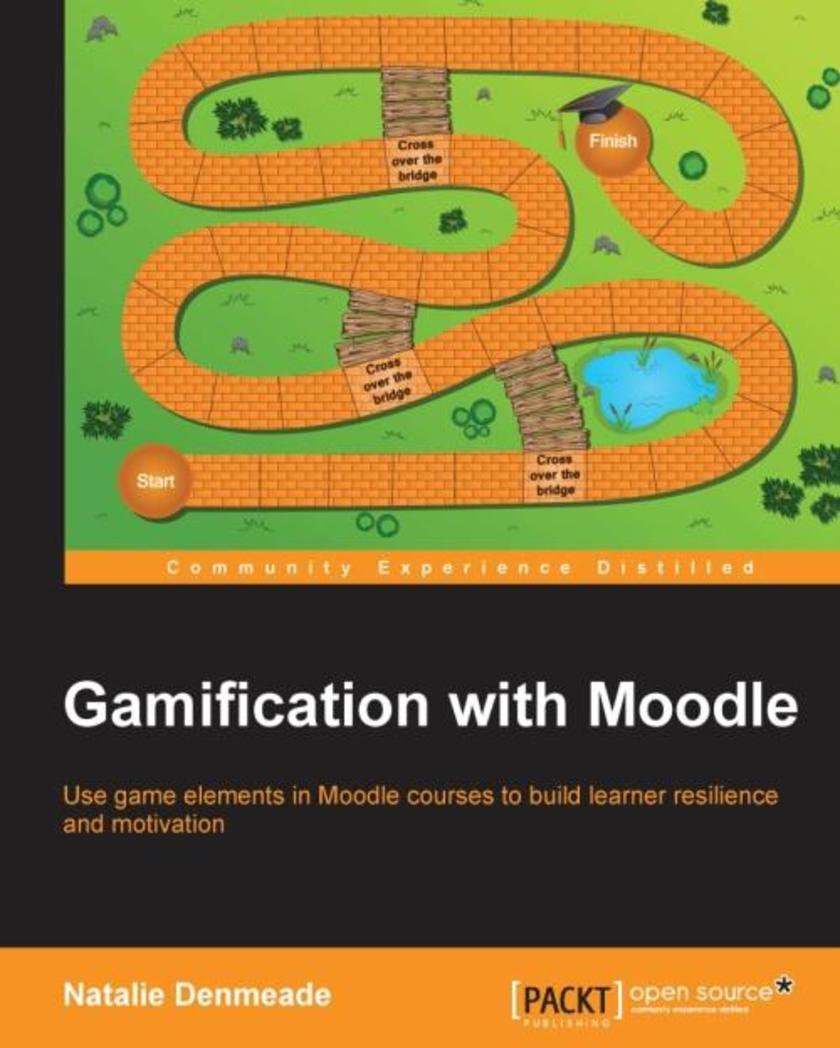
Gamification with Moodle
¥54.49
Use game elements in Moodle courses to build learner resilience and motivationAbout This BookFormulate a Moodle course that acts as a flexible framework ready for your own contentKeep learners engrossed and create opportunities for motivation through the concepts of status, access, and powerA resourceful guide to innovative learning using automatic reports, assessments, and conditional release of activities Who This Book Is For This book has been designed for teachers who to use technology to create more engaging learning experiences for both online learning and in face-to-face sessions. This book will especially appeal to people who are interested in the underlying mechanics of play and games and want to know more about applying these concepts in an educational context. It is assumed that you are a teacher and expert in your field, have basic computer skills, and have access to the Internet.What You Will LearnSet up a scoring system using Moodle GradebookEnable communication and collaboration in your class as a Learning Community using forumsAssess your learners’ abilities by setting up challenges and questsConfigure gateways to check and ensure progress before new content or activities are releasedCreate Moodle assignments to provide effective feedback through a comment bank and custom scaleIssue Open Badges to recognize achievements and set up an online backpack to share digital badgesReduce anxiety for learners by using the game-like concept of “Levelling Up” In Detail This book describes how teachers can use Gamification design within the Moodle Learning Management System. Game elements can be included in course design by using, badges, rubrics, custom grading scales, forums, and conditional activities. Moodle courses do not have to be solo-learning experiences that replicate Distance Education models. The Gamification design process starts by profiling players and creating levels of achievement towards meeting learning outcomes. Each task is defined, valued, and sequenced. Motivation loops are devised to keep the momentum going. In a gaming studio, this approach would require a team of specialists with a large budget and time frames. Preparing for a class rarely has these optimal conditions. The approach used in this book is to introduce game elements into the course design gradually. First, apply gamification to just one lesson and then build up to gamifying a series of lessons over a term. Each example will indicate the difficulty level and time investment. Try it out to see what is most effective with your learners and choose wisely in your use of technology. By the end of this book, you will be able to create Moodle courses that incorporate choice, communication, challenge, and creativity.Style and approach An easy-to-follow guide full of screenshots and step-by-step instructions with estimated time frames required to accomplish numerous tasks. Tips are offered for new Moodlers and plugin extensions are suggested for advanced Moodlers. The focus of the book is on why you would want to use each activity rather than detailed technical de*ions.
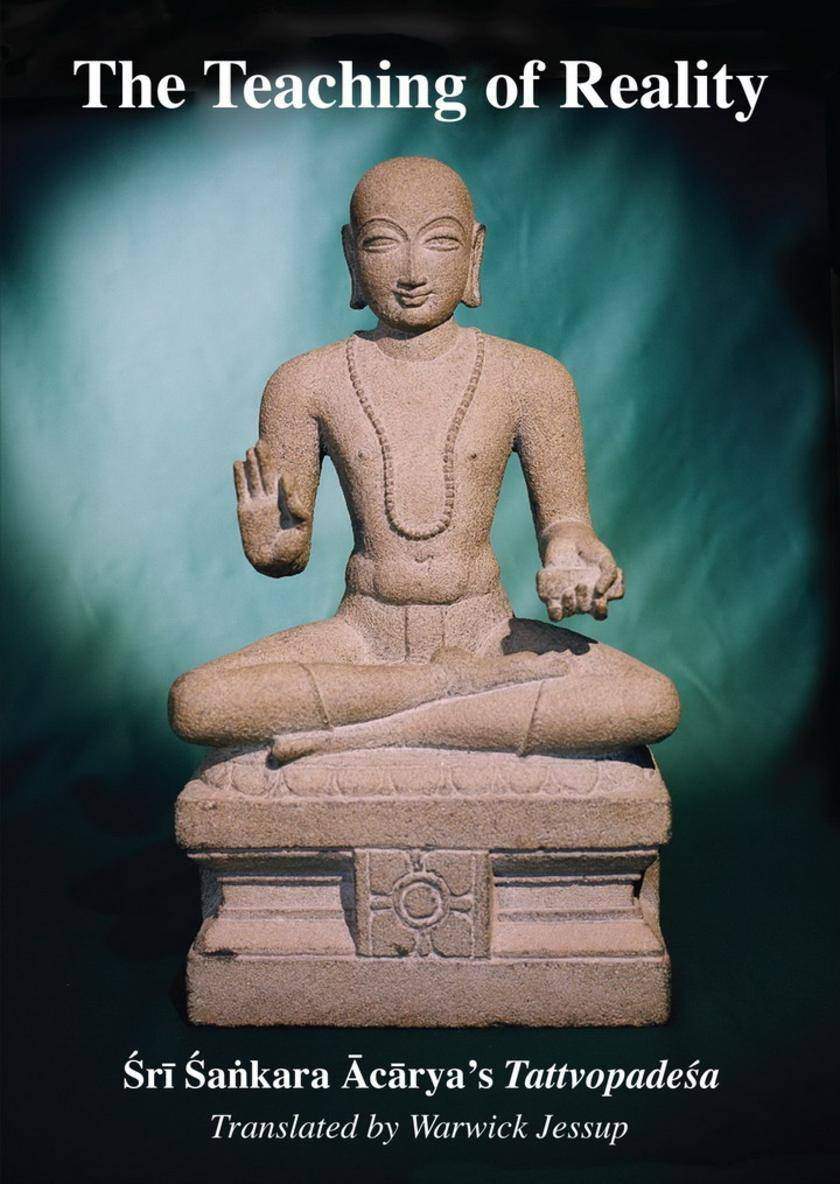
The Teaching Of Reality
¥24.44
The Teaching of Reality is, as far as we know, the first translation into English of Tattvopade?a, a work attributed to the great spiritual teacher ?ankara. The text reveals the full significance of the great sentence ‘You are That’ (tat twam asi), which is said to convey the essence of the entire teaching of the Upanishads and to be the key to Advaita, the philosophy of non-duality. The reader is led through a systematic process enabling the real Self to be realised in practice.

Mastering Machine Learning with R
¥99.18
Master machine learning techniques with R to deliver insights for complex projectsAbout This BookGet to grips with the application of Machine Learning methods using an extensive set of R packagesUnderstand the benefits and potential pitfalls of using machine learning methodsImplement the numerous powerful features offered by R with this comprehensive guide to building an independent R-based ML system Who This Book Is For If you want to learn how to use R's machine learning capabilities to solve complex business problems, then this book is for you. Some experience with R and a working knowledge of basic statistical or machine learning will prove helpful.What You Will LearnGain deep insights to learn the applications of machine learning tools to the industryManipulate data in R efficiently to prepare it for analysisMaster the skill of recognizing techniques for effective visualization of dataUnderstand why and how to create test and training data sets for analysisFamiliarize yourself with fundamental learning methods such as linear and logistic regressionComprehend advanced learning methods such as support vector machinesRealize why and how to apply unsupervised learning methods In Detail Machine learning is a field of Artificial Intelligence to build systems that learn from data. Given the growing prominence of R—a cross-platform, zero-cost statistical programming environment—there has never been a better time to start applying machine learning to your data. The book starts with introduction to Cross-Industry Standard Process for Data Mining. It takes you through Multivariate Regression in detail. Moving on, you will also address Classification and Regression trees. You will learn a couple of “Unsupervised techniques”. Finally, the book will walk you through text analysis and time series. The book will deliver practical and real-world solutions to problems and variety of tasks such as complex recommendation systems. By the end of this book, you will gain expertise in performing R machine learning and will be able to build complex ML projects using R and its packages.Style and approach This is a book explains complicated concepts with easy to follow theory and real-world, practical applications. It demonstrates the power of R and machine learning extensively while highlighting the constraints.
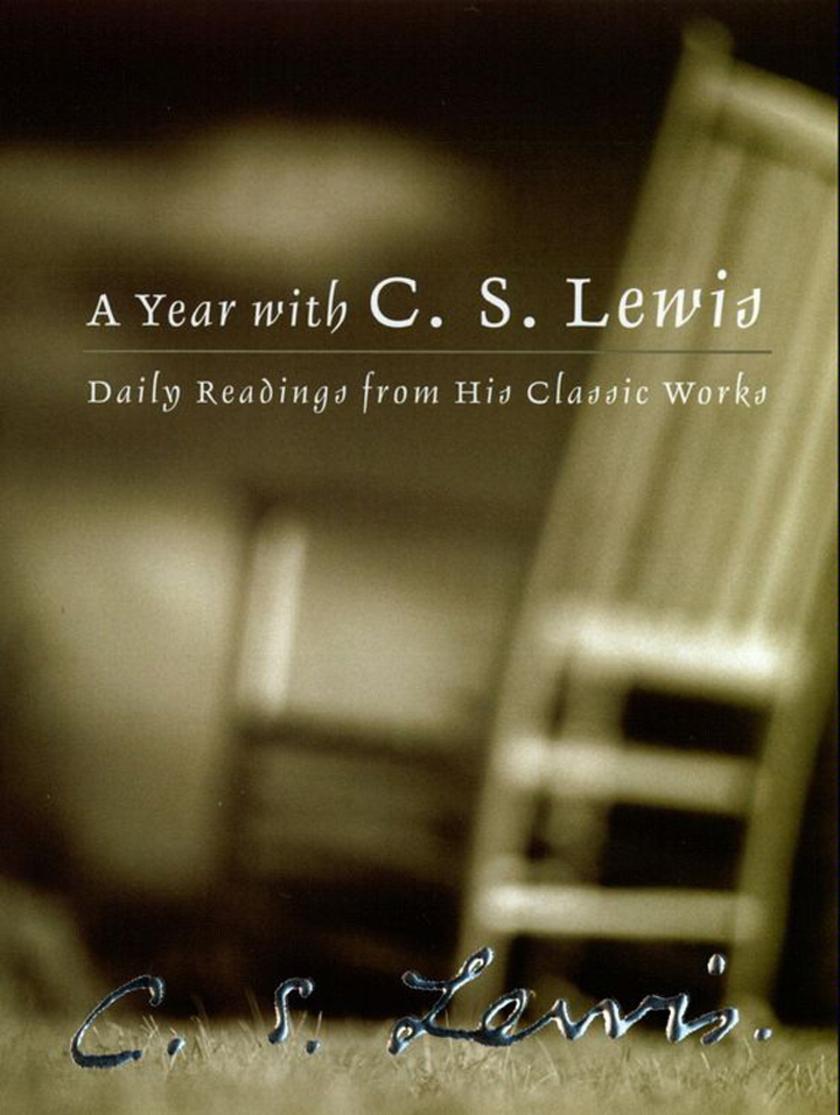
A Year with C. S. Lewis 与C.S.路易斯相伴365日
¥138.41
Beloved author C. S. Lewis is our trusted guide in this intimate day-by-day companion offering his distinctive and celebrated wisdom. Amidst the bustle of our daily experience, A Year with C. S. Lewis provides the necessary respite and inspiration to meet the many challenges we face in our lives. Ruminating on such themes as the nature of love, the existence of miracles, overcoming a devastating loss, and discovering a profound faith, Lewis offers unflinchingly honest insight for each day of the year. These daily meditations have been culled from Lewis's celebrated Signature Classics: Mere Christianity , The Screwtape Letters , The Great Divorce , The Problem of Pain , Miracles , and A Grief Observed , as well as from the distinguished works The Weight of Glory and The Abolition of Man. Throughout this elegant daybook the reader will find poignant biographical com-mentary about C. S. Lewis's life that offers a remarkable portrait of Lewis in the context of his work. As each day unfolds, we embark on a path of discovery with a friend by your side. A Year with C. S. Lewis is the perfect com-panion for everyone who cherishes Lewis's timeless words.
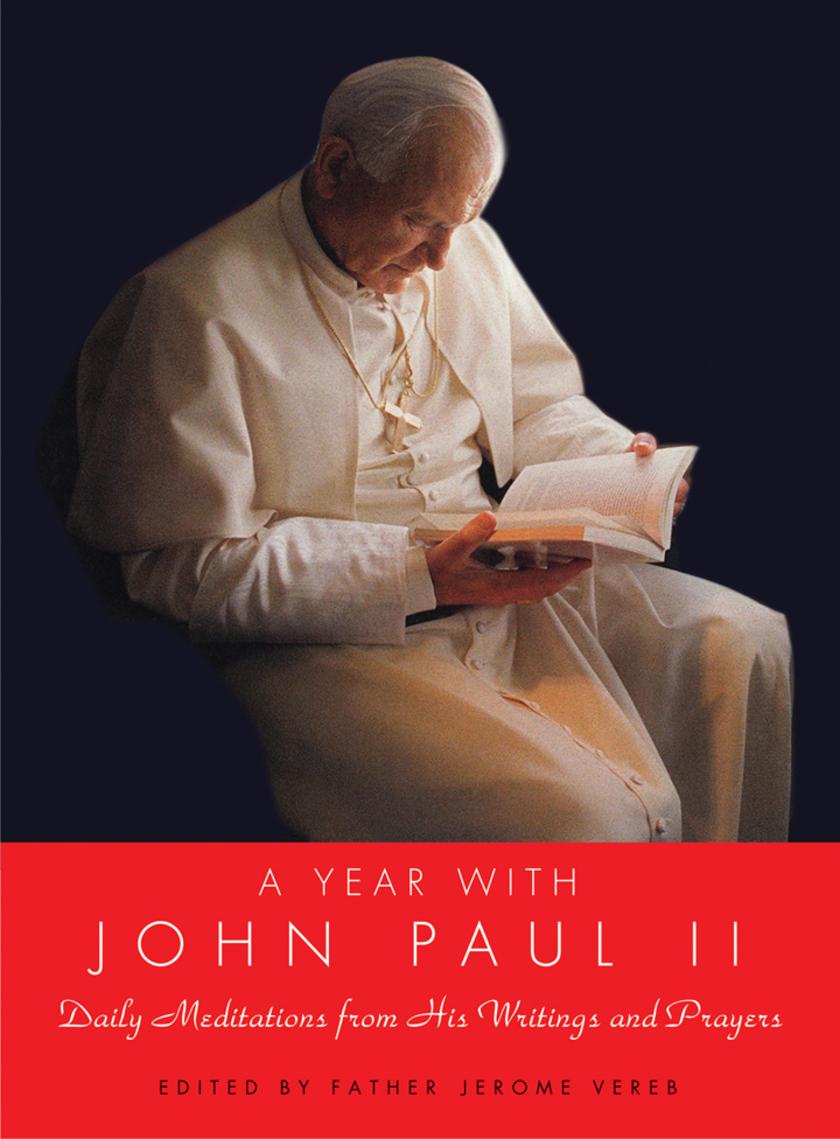
A Year with John Paul II
¥127.33
Called the Pilgrim Pope, a pope of the people, John Paul II connected with his flock from the highest to the lowest. He was one of history's most beloved popes among Catholics and non-Catholics alike, a man whose indomitable spirit touched and taught us all. A Year with John Paul II showcases his most important teachings as well as his inspirational writings, in a daily devotional format that will inspire readers and deepen their reflections and meditations. With a foreword by Cardinal William W. Baum, head of the Holy See's Major Penitentiary and former archbishop of Washington DC, an introduction by Bishop William Murphy, and a moving eulogy composed for the pope's funeral by Cardinal Joseph Ratzinger (now Pope Benedict XVI), A Year with John Paul II will take readers on a year-long spiritual journey with this deeply religious and inspiring man. Karol Wojyla was born on May 18, 1920, in Wadowice, Poland. He survived the Nazi occupation during World War II and was ordained to the priesthood in 1946. He was appointed archbishop of Krakow by Pope Paul VI. On October 16, 1978, he ascended to the papacy, taking the name John Paul II. During his papacy he greeted an estimated sixteen million pilgrims at the Vatican's general audiences. Pope John Paul II died in April 2005.

The Screwtape Letters
¥83.92
A milestone in the history of popular theology, The Screwtape Letters is an iconic classic on spiritual warfare and the dynamics of temptation. This profound and striking narrative takes the form of a series of letters from Screwtape, a devil high in the Infernal Civil Service, to his nephew Wormwood, a junior colleague engaged in his first mission on earth, trying to secure the damnation of a young man who has just become a Christian. Although the young man initially looks to be a willing victim, he changes his ways and is "lost" to the young devil. Dedicated to Lewis's friend and colleague J. R. R. Tolkien, The Screwtape Letters is a timeless classic on spiritual conflict and the psychology of temptation which are part of our religious experience.
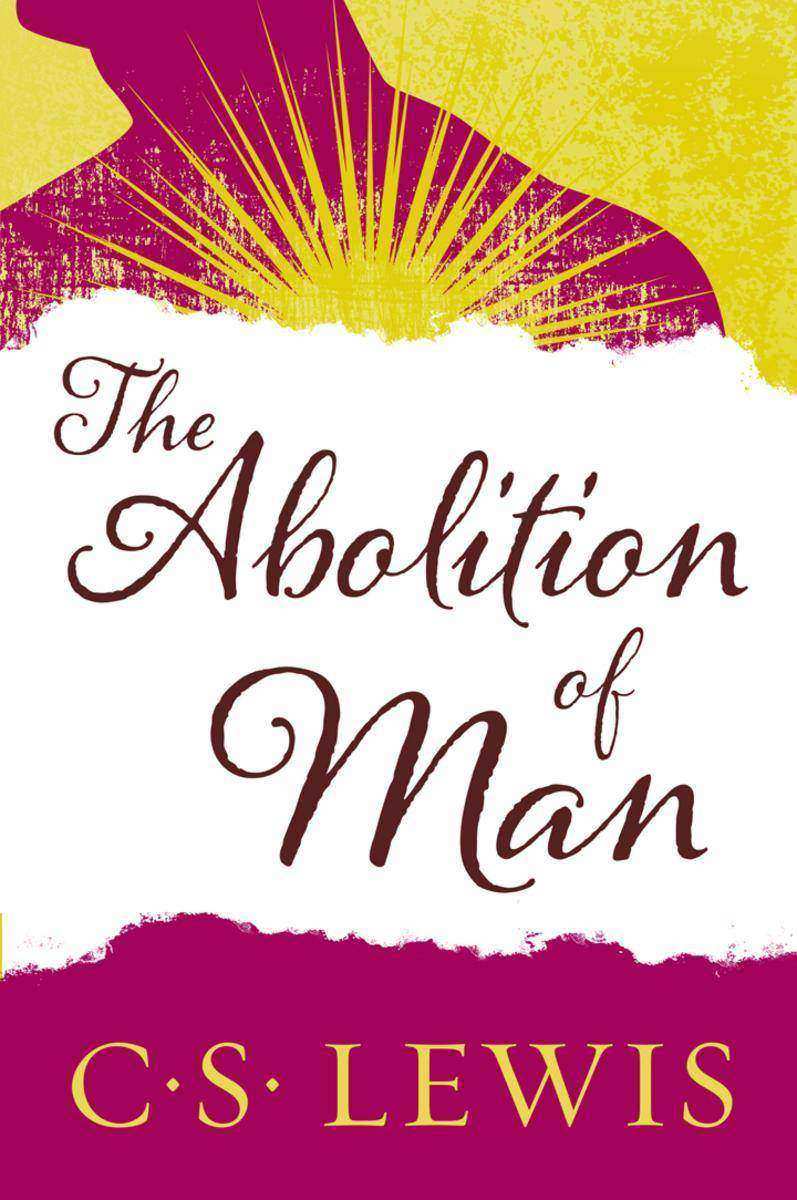
The Abolition of Man
¥78.32
Both astonishing and prophetic, The Abolition of Man remains one of C. S. Lewis's most controversial works. Lewis sets out to persuade his audience of the ongoing importance and relevance of universal objective values, such as courage and honor, and the foundational necessity of natural law. He also makes a cogent case that a retreat from these pillars of our educational system, even if in the name of "scientism," would be catastrophic. National Review lists it as number seven on their "100 Best Nonfiction Books of the Twentieth Century."
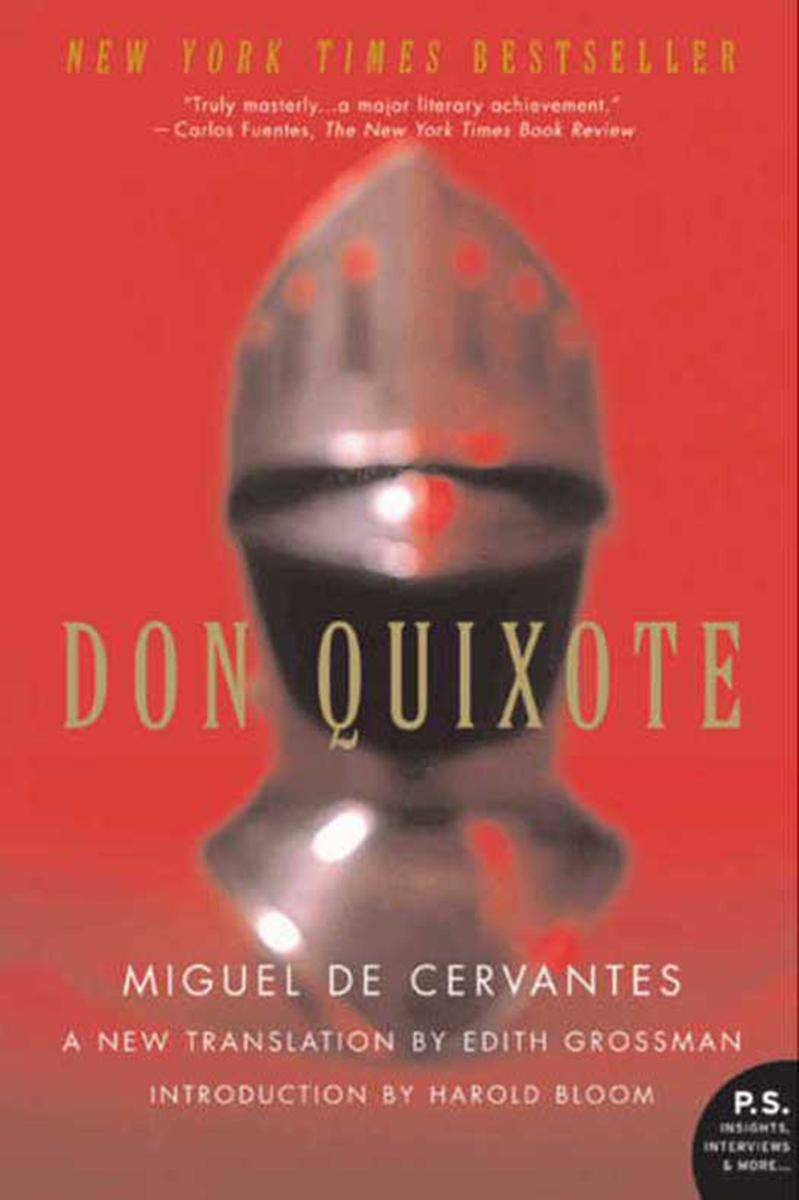
Don Quixote
¥111.91
Edith Grossman's definitive English translation of the Spanish masterpiece. Widely regarded as the world's first modern novel, and one of the funniest and most tragic books ever written, Don Quixote chronicles the famous picaresque adventures of the noble knight-errant Don Quixote of La Mancha and his faithful squire, Sancho Panza, as they travel through sixteenth-century Spain. Unless you read Spanish, you've never read Don Quixote. "Though there have been many valuable English translations of Don Quixote, I would commend Edith Grossman's version for the extraordinarily high quality of her prose. The Knight and Sancho are so eloquently rendered by Grossman that the vitality of their characterization is more clearly conveyed than ever before. There is also an astonishing contextualization of Don Quixote and Sancho in Grossman's translation that I believe has not been achieved before. The spiritual atmosphere of a Spain already in steep decline can be felt throughout, thanks to her heightened quality of diction. Grossman might be called the Glenn Gould of translators, because she, too, articulates every note. Reading her amazing mode of finding equivalents in English for Cervantes's darkening vision is an entrance into a further understanding of why this great book contains within itself all the novels that have followed in its sublime wake." From the Introduction by Harold Bloom Miguel de Cervantes was born on September 29, 1547, in Alcala de Henares, Spain. At twenty-three he enlisted in the Spanish militia and in 1571 fought against the Turks in the battle of Lepanto, where a gunshot wound permanently crippled his left hand. He spent four more years at sea and then another five as a slave after being captured by Barbary pirates. Ransomed by his family, he returned to Madrid but his disability hampered him; it was in debtor's prison that he began to write Don Quixote. Cervantes wrote many other works, including poems and plays, but he remains best known as the author of Don Quixote. He died on April 23, 1616.

Learning Java Functional Programming
¥99.18
Create robust and maintainable Java applications using the functional style of programmingAbout This BookExplore how you can blend object-oriented and functional programming styles in JavaUse lambda expressions to write flexible and succinct codeA tutorial that strengthens your fundamentals in functional programming techniques to enhance your applications Who This Book Is For If you are a Java developer with object-oriented experience and want to use a functional programming approach in your applications, then this book is for you. All you need to get started is familiarity with basic Java object-oriented programming concepts.What You Will LearnUse lambda expressions to simplyfy codeUse function composition to achieve code fluencyApply streams to simply implementations and achieve parallelismIncorporate recursion to support an application’s functionalityProvide more robust implementations using OptionalsImplement design patterns with less codeRefactor object-oriented code to create a functional solutionUse debugging and testing techniques specific to functional programs In Detail Functional programming is an increasingly popular technology that allows you to simplify many tasks that are often cumbersome and awkward using an object-oriented approach. It is important to understand this approach and know how and when to apply it. Functional programming requires a different mindset, but once mastered it can be very rewarding. This book simplifies the learning process as a problem is described followed by its implementation using an object-oriented approach and then a solution is provided using appropriate functional programming techniques. Writing succinct and maintainable code is facilitated by many functional programming techniques including lambda expressions and streams. In this book, you will see numerous examples of how these techniques can be applied starting with an introduction to lambda expressions. Next, you will see how they can replace older approaches and be combined to achieve surprisingly elegant solutions to problems. This is followed by the investigation of related concepts such as the Optional class and monads, which offer an additional approach to handle problems. Design patterns have been instrumental in solving common problems. You will learn how these are enhanced with functional techniques. To transition from an object-oriented approach to a functional one, it is useful to have IDE support. IDE tools to refactor, debug, and test functional programs are demonstrated through the chapters. The end of the book brings together many of these functional programming techniques to create a more comprehensive application. You will find this book a very useful resource to learn and apply functional programming techniques in Java.Style and approach In this tutorial, each chapter starts with an introduction to the terms and concepts covered in that chapter. It quickly progresses to contrast an object-oriented approach with a functional approach using numerous code examples.




 购物车
购物车 个人中心
个人中心



